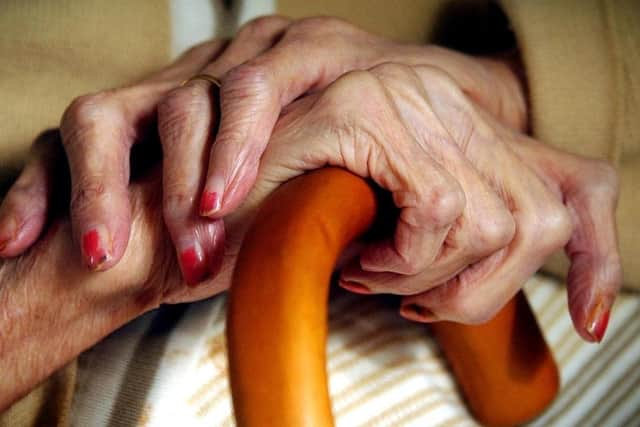Why we should treat senior citizens as if they are our age - Daxa Patel
Ask a person of age 70 or over about how they feel they are treated the minute someone knows their age, and it is quite an insight. I am friends with a lovely lady aged 91. We have become firm friends since we have been talking to each other for the last seven years. Our connection came about through me volunteering as a telephone friend through a well-known charity which supports our senior citizens.
From my friend, I will call her Susan for the purpose of this article, I have learnt a lot about how she feels the world sees her. I also learnt quite a bit from my father who lived until the age of 95.
Advertisement
Hide AdAdvertisement
Hide AdFrom banking to retail stores, ageism exists at every level of our society though it is fashionable for most service providers to say they are diverse and inclusive. Diversity, equality and inclusion also applies to our unconscious bias in how we see our senior citizens through our conditioned lens.


Our language and use of words alone is a great way to sense how we talk about this group of people. A friend of mine asked me if we would say a pensioner has had a fall or has fallen, chances are, we will say they had a fall. Some people see an older person and start to talk to them as if they were hard of hearing. I remember an incident many years back when I managed to burn my hand while mishandling a hot saucepan. My dad, then around age 80, immediately drove me to our local chemist and demanded the pharmacist give me some cooling ointment. The pharmacy staff in response spoke to my father as if a) he didn’t understand English and b) he was hard of hearing. My dad was neither, he spoke good English though that was not his first language, and he certainly was not hard of hearing.
My friend Susan told me recently about an incident involving a sofa man who came to her flat to show her how to use her new recliner. The chap spoke to her as if she was age five, Susan’s words not mine.
During the pandemic Susan told me how she grew up during the blitz. She has been through hardship I cannot possibly imagine. Last week I could not get hold of Susan when I made my regular call, concerned I contacted the charity to check in on her, their response, “we are not a check in service”.
Advertisement
Hide AdAdvertisement
Hide AdIt pays to appreciate that ageing is a part of life. A person is still the same no matter how old they are, and when we are treated as if we are past it, we may realise how this actually feels. As a solicitor, I have heard of instances where families were forced to sign a DNR (do not resuscitate) and quite possibly, we may hear some uncomfortable truths as to how collectively, as a society, we did fail to protect those who needed us to protect them the most. Remember, our senior citizens have wisdom and lifetime of lived experience, they have much to teach us if only we bother to sit down and listen to them speak. They have this innate ability to put things into perspective when the slightest thing like, for example, a banking app not working disturbs our balance. We have a wealth of knowledge in our midst. Next time you meet someone over the age of 70 treat them as if they are your age, and you will be surprised how enriching your encounter becomes.
Daxa Manhar Patel is a solicitor, author and executive coach.